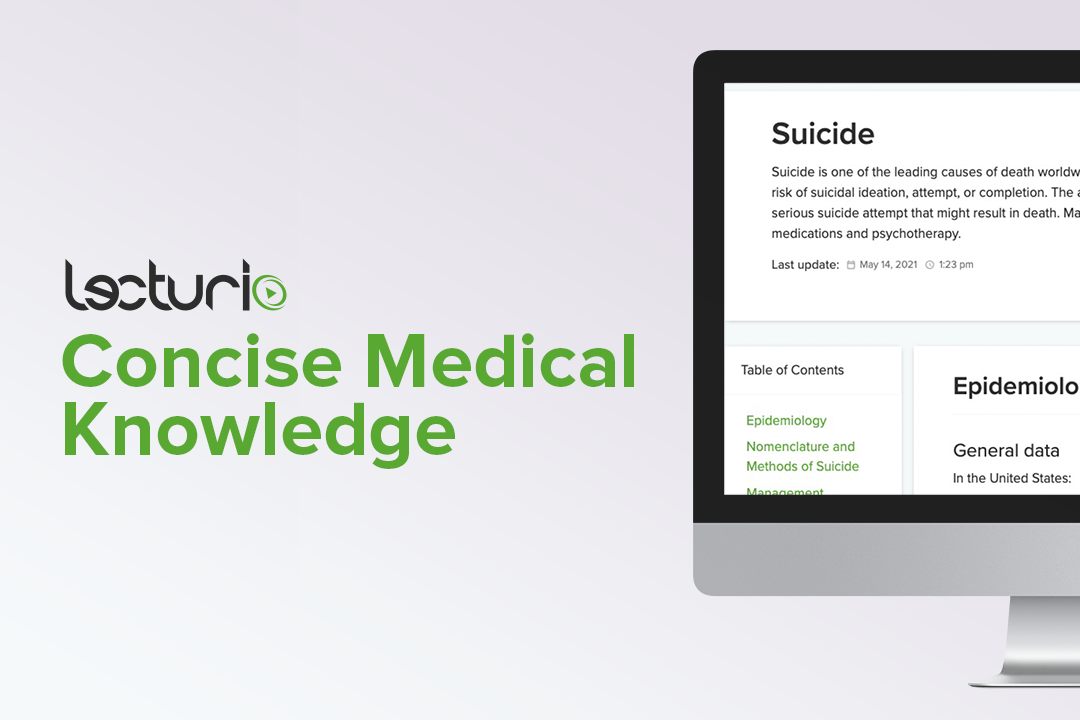Playlist
Show Playlist
Hide Playlist
Suicidal Patients: Diagnosis
-
Emergency Medicine Bord Approach to the suicidal patient.pdf
-
Download Lecture Overview
00:01 Our role in the Emergency Department is twofold. 00:04 So the first part is focusing on medical clearance and then, a focused medical assessment. 00:10 For the most part, these patients will be evaluated further by a social worker or by a psychiatrist, or a psychiatry resident in the Emergency Department. 00:19 One of our main goals is to focus on the medical aspect. 00:23 So what does that mean exactly? When we’re seeing a patient who’s concerned about suicidality, we have to do a focused history related to the psychiatric presenting complaints and related to prior illness. 00:37 So asking them if they have any history of depression, asking them if they have any prior suicide attempts. 00:43 We wanna assess them for any acute medical complaints. 00:48 So are they having in addition to their suicidal thoughts and their depression, are they having any chest pain, or belly pain, or vomiting? Do they have any other acute medical issues going on? Many patients who present to the Emergency Department for these complaints are oftentimes young. 01:06 Sometimes they don’t have a lot of other medical comorbidity, but you definitely wanna be wary and be thinking about this in the older patient or the patient who has a lot of other medical illness. 01:17 You wanna do a focused exam looking for medical illness or any evidence of self-harm. 01:23 And if a patient has altered mental status, you wanna start thinking about is there an organic cause? So is this related to something medically? Or is this more psychiatric in nature? It’s important to note that routine labs do not necessarily alter patient management. 01:40 There have been studies that have come out that show that sending routine screening labs for these patients doesn’t necessarily change what you do for them. 01:48 Some psychiatric hospitals or facilities, or different state regulations do have different requirements, so they may be sent regardless. 01:55 Now, these routine labs may be required prior to psychiatric admission in certain locations but really focus testing, so for example, if someone is telling you they’re having abdominal pain, doing testing to focus on their abdominal pain. 02:10 Or someone’s telling you they’re having chest pain, doing focus testing for that really yields better results rather than this kind of big send out of labs. 02:19 So this big screening of labs by getting blood counts and chemistry panels, very rarely is it gonna tell you something that you potentially didn’t already know based on talking with your patient.
About the Lecture
The lecture Suicidal Patients: Diagnosis by Sharon Bord, MD is from the course Neurologic and Psychiatric Emergencies.
Included Quiz Questions
Which of the following statements about diagnosing suicidal patients who present to the emergency department is TRUE?
- Targeted laboratory testing is more appropriate than routine panels.
- Organic causes are not a primary concern in such patients.
- A head computed tomography scan is indicated in the majority of patients.
- A urine toxicology test is always indicated.
Customer reviews
5,0 of 5 stars
| 5 Stars |
|
5 |
| 4 Stars |
|
0 |
| 3 Stars |
|
0 |
| 2 Stars |
|
0 |
| 1 Star |
|
0 |




